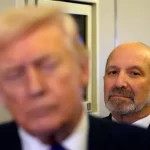
British Prime Minister Liz Truss announced Thursday she is resigning, leaving behind a niche in the record books as the nation’s shortest-serving prime minister.
“It was a matter of time, really,” said Gus Correa, 32, a graphic designer in east London, according to The New York Times.
“I’m not sure how Britain will get out of this,” he said, referring to the economic and political mess Truss will leave behind.
Her 44 days were marked by turmoil over her fiscal program, which included tax cuts for wealthy individuals and others, the New York Post noted. During her brief tenure, mortgage rates rose, the value of the pound fell and her energy proposal was trashed for its impact on consumers.
On Wednesday, Truss dismissed talk of resigning, saying she was “a fighter, not a quitter.”
Trending:
On Thursday, she said she would be stepping down.
Truss said she had been chosen by the Conservative Party to implement an agenda of change.
“We delivered on energy bills and on cutting national insurance, and we set out a vision for a low-tax, high-growth economy that would take advantage of the freedoms of Brexit,” she said in her farewell speech, according to the Times.
“I recognize, though, given the situation, I cannot deliver the mandate on which I was elected by the Conservative Party,” Truss said. “I have therefore spoken to His Majesty the King to notify him that I am resigning as leader of the Conservative Party.”
[embedded content]
She indicated she would formally step aside next week after the party selects a new leader who would become prime minister.
Truss was chosen following the resignation of Prime Minister Boris Johnson in July.
A CNN report that quoted sources who were not named said Johnson could emerge as a candidate to replace Truss.
The Times listed possible candidates to replace her as Rishi Sunak, a former chancellor of the Exchequer whom Truss defeated when she won the fight to be party leader this summer; Penny Mordaunt, leader of the House of Commons; Ben Wallace, the current defense secretary.
Labor Party leader Keir Starmer called for a general election.
“Each one of these crises was made in Downing Street but paid for by the British public. Each one has left our country weaker and worse off,” he said in a statement posted to Twitter.
“The Tories cannot respond to their latest shambles by yet again simply clicking their fingers and shuffling the people at the top without the consent of the British people,” he said. “They do not have a mandate to put the country through yet another experiment; Britain is not their personal fiefdom to run how they wish.”
After 12 years of Tory failure, the British people deserve so much better than this revolving door of chaos.
We need a general election, now.
My full statement: pic.twitter.com/NAQz70eVke
— Keir Starmer (@Keir_Starmer) October 20, 2022
Some Britons said they were hoping for better times but remained skeptical.
“We are in an economic crisis, a political crisis, a food crisis — an everything crisis,” Cristian Cretu, a London gas engineer said, according to the Times. “Whoever is going to replace her, I don’t think they will make a difference. …”
“We need a leader. There are no leaders.”
Uber driver Michael Debas called the leadership change “just crazy.”
“What’s going on in this country?” he said.
The previous record for the shortest term as prime minister was held by George Canning, who entered office on April 10, 1827, and died of pneumonia in August, 118 days later, as noted by The Sun.






